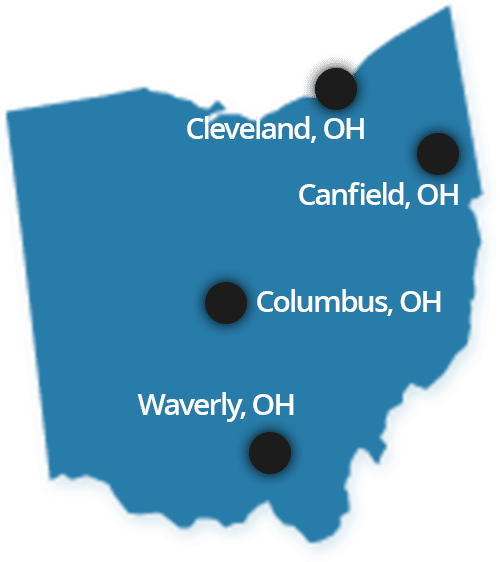People often ask us what we do and who we represent. This is who:
A Tragic Death, A Tragic Lawsuit
Stephen Halton Jr. was an anesthesia technician at the Cleveland Clinic. He was on call on January 11, 2014 when he was paged to assist in a liver transplant surgery. On his way to the hospital, he was gunned down by a still-unknown assailant.
After this tragedy, Stephen’s family applied for death compensation benefits from Cleveland Clinic to support his widow and two young children, aged 6 and 8. The Ohio Industrial Commission refused the claim originally, but changed their decision on appeal when they found that Stephen’s employment contract specifically stated that time spent going to the hospital counted as paid, on-call time. The Cleveland Clinic was required to pay back benefits and start paying regular benefits going forward. But now there’s a new twist – Cleveland Clinic has filed an appeal to block payment of those benefits.
Death On Call
Compensating the families of people that are killed on the job can eat into a business’s budget – so they don’t want to do it. Even though the benefits amount to about $850 per week, the Clinic doesn’t want to set a precedent of making those kinds of payments when employees may not have been on the clock.
The case would have been indisputable if Stephen had been at the hospital when he was killed, but the Clinic is looking for an opening because he was still en route. They argue that Stephen wasn’t on the clock until 6:00 am, the planned surgery time, and was not yet on-call when he was murdered at 4:30 am.
Here’s the legal issue: death benefits from an employer only apply if the death happens on the job. If the employee dies during a vacation, for example, the employer isn’t liable. The question is whether Stephen was “on the job” or not.
The Ohio Industrial Commission, which is responsible for deciding workers’ compensation and death benefits claims, is siding with the family. They’re pointing to his employment contract and to other cases in Ohio where people were injured or killed while responding to work calls and were entitled to death benefits.
Employment Contracts, Employee Rights
Stephen had a contract with his employer stipulating, among other things, when he would be on the clock. The contract specifically said that he would be on the clock – and getting paid – while traveling to answer a call.
Employment contracts can legally cover a lot of different aspects of your job. They may include pay, non-compete clauses, procedures for arbitration, benefits, and more. In general, they can’t be used to deny your statutory rights to things like workers’ compensation. They can, however, expand those rights. That’s the situation we’re looking at here, and it has happened in other cases in Ohio.
Why We Do What We Do
This is a situation where a grieving widow and her two young children have had to withstand the sudden and tragic death of a husband and father. They have had to endure the agony of knowing his murderer is still on the street somewhere – he still hasn’t been found. And now, they’re facing losing his death benefits compensation under the latest appeal by the Cleveland Clinic. This family has been through an incredibly difficult time and the last thing they deserve is to be denied compensation after Stephen was killed on the job.
We’re proud to represent these kinds of people – people that deserve fair treatment and are having to fight to get it. We wish these kinds of cases never came up, that tragic murders never happened and families were never broken, but they do. And that’s why we’re here – to fight for them.
Stephen’s colleagues have set up a fund to help support his widow and children during this difficult time. If you’d like to contribute, you can do it here.

